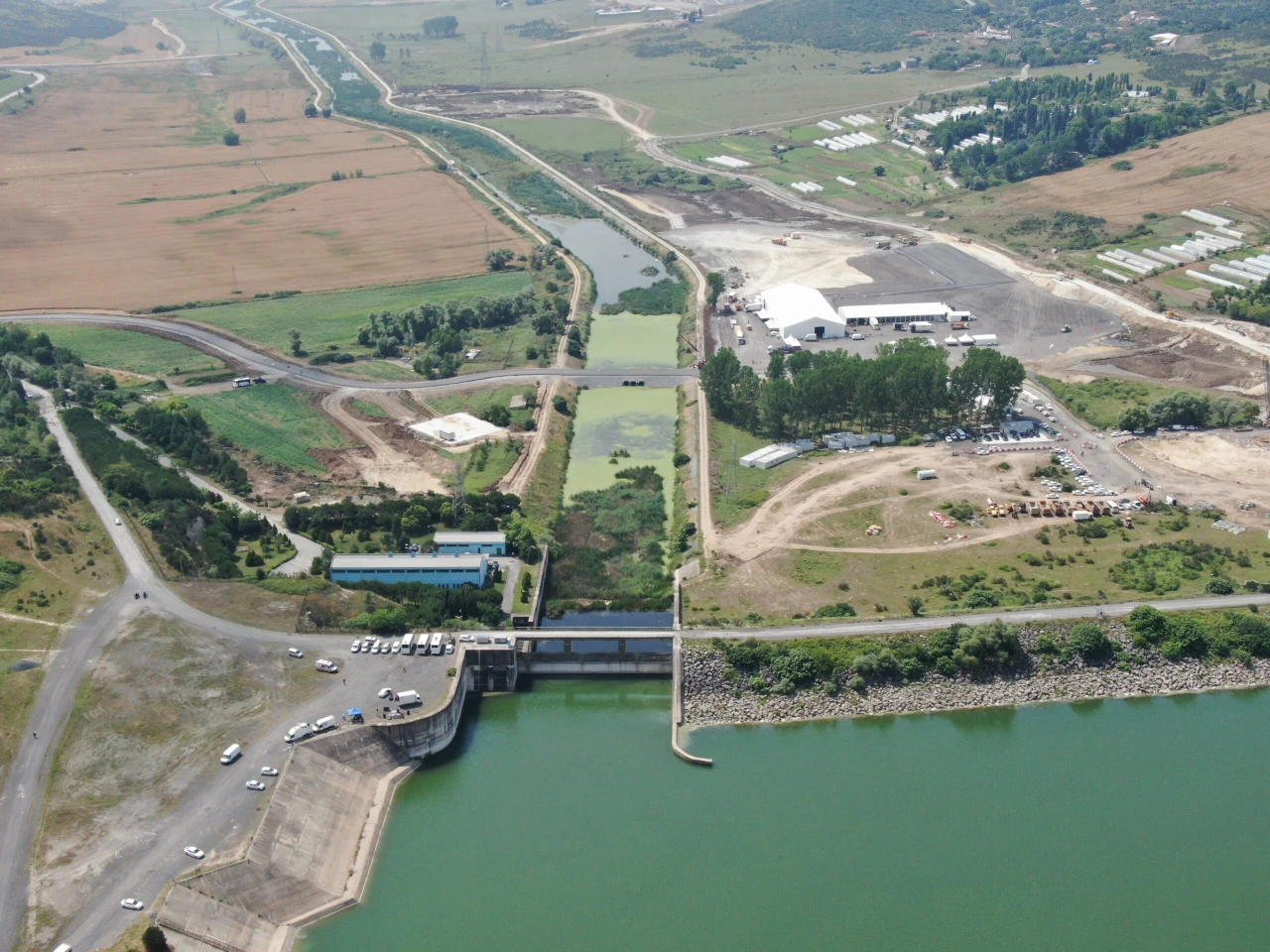Tsar Peter against Ottomans: Nearly lost his life while building Greater Russia
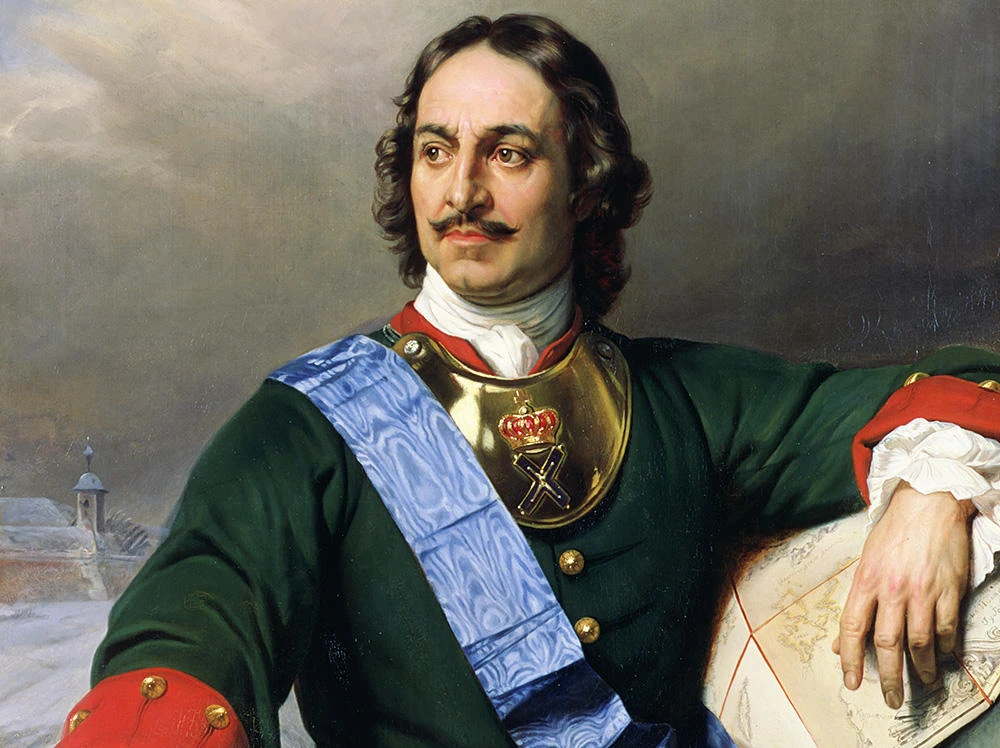 Peter the Great by Paul Delaroche, painted oil on canvas in 1838. Hamburg, Germany.
Peter the Great by Paul Delaroche, painted oil on canvas in 1838. Hamburg, Germany.
Peter the Great’s primary goal was to transform Russia into a dominant world power. His southern strategy focused on capturing the Black Sea and the Bosphorus Straits to dismantle the Ottoman Empire and gain access to the Mediterranean. To achieve this, he incited Orthodox Christians in the Balkans to revolt while launching hit-and-run attacks on Ottoman territories.
The Ottoman Empire, pushed beyond its limits by Russian political and military aggression, declared war on Russia on November 20, 1710, with Sultan Ahmed III’s approval. The Ottoman army’s swift advance, reaching the Danube before the Russians, disrupted Tsar Peter’s plans and forced the Russian army into a defensive position. Ultimately, the Ottoman forces besieged the retreating Russian army at the Prut River, subjecting them to hunger, thirst, and disease.
Facing imminent destruction from intense Ottoman artillery fire, the Russians desperately sought peace. Despite resistance from Grand Vizier Baltaci Mehmet Pasha, his deputy Osman Kethuda, some statesmen, the Crimean Khan, and others, the Ottomans accepted the Russian envoys’ promises and signed a peace treaty on July 22, 1711.
Numerous theories and stories have emerged regarding the events leading to the peace agreement. Some even claim that Tsar Peter’s mistress, Catherine, saved Russia from disaster by offering herself to Mehmet Pasha. Since this article is not about responding to the Prut legends, it will be sufficient to say a single sentence about this fabrication. Both Ottoman and Russian sources, including the journals of Janissary scribe Hasan, who will be frequently mentioned in our article, do not provide any information about such a meeting. All of these are fabrications of a powerful imagination. So, what was the reality behind all this fiction? The most accurate answer to this question is given by Janissary Scribe Hasan Agha, a spirited seventy-year-old and a firsthand witness to the campaign.
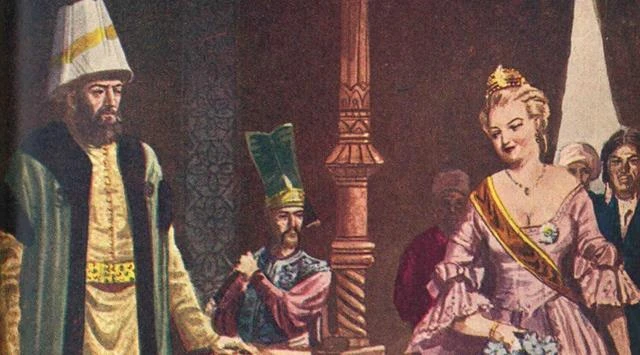
Who was janissary scribe Hasan Agha?
Born in the mid-17th century in the Middle East, likely in a region with a significant Kurdish and non-Muslim population, Hasan was orphaned at a young age. Following his mother’s insistence, he joined the Janissary corps, his father’s former post.
According to his journal, he became a Janissary in 1656-57 and participated in campaigns in Yaylak and Kamianets under Sultan Mehmed IV’s command. He later fought against the Russians in Ukraine during the Oman campaign led by Grand Vizier Kara Mustafa Pasha in 1674.
However, Hasan, a Janissary with blood on his hands and sword, inexplicably traded his sword for a pen filled with black ink upon the army’s return. He became a scribe in the Janissary office, handling personnel matters. Perhaps he quietly withdrew from the battlefield due to pressure from jealous comrades.
Hasan was promoted to Janissary scribe in 1682 and served in various fortresses, including Chania, Rethymno, Heraklion, Lesbos, and Euboea until 1704. He was then appointed as the chief Janissary scribe in Istanbul.
By then, he was over 60 years old. Thirty years of service had transformed him from a ruthless young killer into a wise old man reflecting on the world. Yet, his spirit remained fiery. He reminisced about his campaigns as a Janissary and longed for those glorious days.
His greatest aspiration, as expressed in his journal, was:
“I always lamented and felt sorrowful, dreaming of a time when I could have been born in the era of our Prophet, to witness his blessed face and participate in a holy war against the infidels, walking as a foot soldier at the stirrup of his horse. If only I had been born in the time of Sultan Mehmed Han, who conquered Constantinople, I would have personally witnessed the truth of our Prophet’s noble words: ‘Constantinople will surely be conquered. What a wonderful commander will conquer it, and what wonderful soldiers will be his army.'”
Seven years later, on Thursday, March 12, 1711, the soldierly scribe Hasan, now in his 70s, a curious, knowledgeable, and experienced statesman, arrived at the Davutpasa camp with the Janissary corps, ready to embark on the Prut Campaign. His love for soldiery and warfare had not left him, and he chose to endure the hardships of his advanced age to be with his Janissary comrades.
This Muscovite campaign, which he considered one of the greatest holy wars, was perhaps his last, rekindling the excitement of his younger days 37 years prior. Therefore, he decided to keep a journal to record his experiences for future generations.
Three copies of Janissary scribe Hasan’s journal have survived to this day, located in St. Petersburg, Munich, and the Topkapi Palace Treasury Library. As it consists of the daily records of a soldier and bureaucrat who personally participated in the campaign, it is a first-hand source for the 1711 Ottoman-Russian War and contains many details not found in official documents.
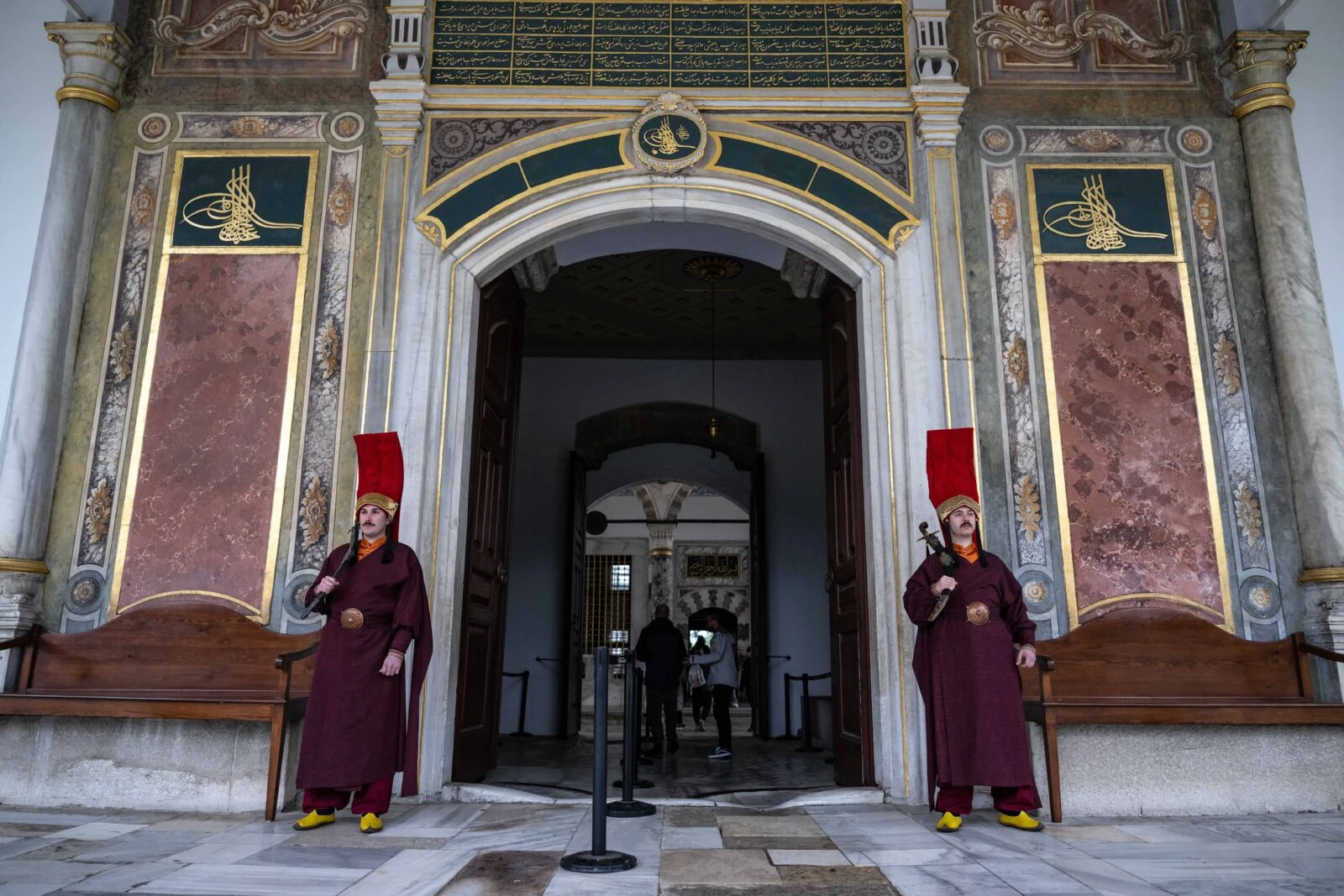
Background of war according to Janissary Hasan
Janissary scribe Hasan Kurdi begins his journal by explaining the political reasons that led to the Ottoman-Russian war, 11 years after the Treaty of Karlowitz. According to him, the main culprit was the treacherous and deceitful Russian Tsar Peter, who did not honor the peace agreement. For 11 years, Peter had been violating the peace, eroding Ottoman dominance in Eastern Europe with his political and military aggressions. His greatest ambition was to incite the Orthodox subjects in the Balkans to revolt, thereby dismantling the Ottoman Empire, and to ascend the throne of the Eastern Roman Empire in Constantinople with his army in grand splendor.
After this political assessment, scribe Hasan moves on to the pretext for the campaign decision. This section covers the developments related to the Sultan, who, upon learning of the Tsar’s activities, convened a grand meeting of state dignitaries, declared war on Russia, erected the tugs (standards), ceremoniously carried the Prophet’s Banner to the camp, and the movement of the Kapikulu army to the Davutpaşa camp.
From the army’s departure from Davutpasa onwards, the journal narrates the campaign journey, clashes with the Russians, the siege, the peace, the return journey, and the events in Istanbul, day by day, in chronological order and with a fluent style. The final section includes a brief autobiography and a one-page section believed to have been added later by someone else.
As understood from the journal’s expressions, Janissary Hasan was religious but not bigoted. For example, while starting the journal by giving the Hijri year, he immediately mentions the birth of Jesus Christ, writing “It is also the year 1711 of Jesus, peace be upon him,” without seeing any problem. He is also truthful and impartial enough to openly write about the great fear created in the Ottoman army by the rumors that the Russian army was very strong and would launch a sudden attack at an unexpected moment, and about the soldiers complaining about the army’s leaders in a critical situation.
His description of the Ottoman army’s preparation for a battle with the Russians reflects his admiration and longing for holy war (ghaza) with sincere and enthusiastic expressions: “Eyes are dazzled by the glitter of countless weapons, the eyes of the brave are beside themselves with the desire for battle, the hearts of the cowards were saddened like faithless souls, hearts were burning, eyes were tearful, the tugs were disheveled like the locks of maidens, the banners were tearing from waving, the cries of the zurna, the laments of the nefir, and the rumble of the drums mixed with the shouts of the warriors, the roars of the brave leading the loud commands of the sergeants.”
Sometimes, he enriches this enthusiastic narrative with literary descriptions and similes using astronomical objects: “Such a fierce battle ensued that the sounds of cannons and rifles rose to the sky, and the gates of terror caused the crown on Saturn’s head to fall. Mercury, the scribe who signed Jupiter’s decree, broke his pen. Mars sheathed his sword in astonishment, Venus struck up a tune, and the much-traveled sun, visiting every planet, hid, not knowing what to do, while the bright moon, which had been hiding, showed its face half-glimpsed as it fled.”
However, the most significant and noteworthy aspect of Hasan’s Prut campaign journal is that it provides some clues that allow us to reach a definitive conclusion about the famous Baltaci-Catherine relationship and the related bribery issues. Regarding the antique bribery issue, which has always been a matter of curiosity and debate in scientific circles and the public, Janissary scribe Hasan states that it was understood during the peace negotiations with the Russians and during the Sultan’s investigation after the campaign that some state officials had abused their positions and committed irregularities.
The first suspicious development that Janissary scribe Hasan points out is that after the ceasefire was declared for peace, Osman, Baltaci’s Kethuda (steward), and some others went to the Russian camp and stayed there until morning. Why did Osman Kethuda and his team, who personally planned and conducted all negotiations with the Russians from the peace request onwards, stay in the Russian camp until morning? What was discussed there? How much of what was discussed was accurately conveyed to Baltaci?
No information was given to Ottoman statesmen and commanders about this, except for a few superficial sentences. However, Russian sources and many foreign sources, especially Ahmet bin Mahmut, the secretary of Hazine-i Birun (the outer treasury), directly or indirectly state that the Ottoman representatives accepted the army treasury offered by the Russians in exchange for peace and that it was secretly brought into the Ottoman camp at midnight. Indeed, in the Ottoman camp, after returning from the Russian camp, Osman tried to persuade Baltaci to make peace, ignored the words of the state dignitaries who objected, and even, as Ahmet bin Mahmut personally witnessed, grabbed Sebzi Mehmet Efendi by the collar and severely reprimanded him.
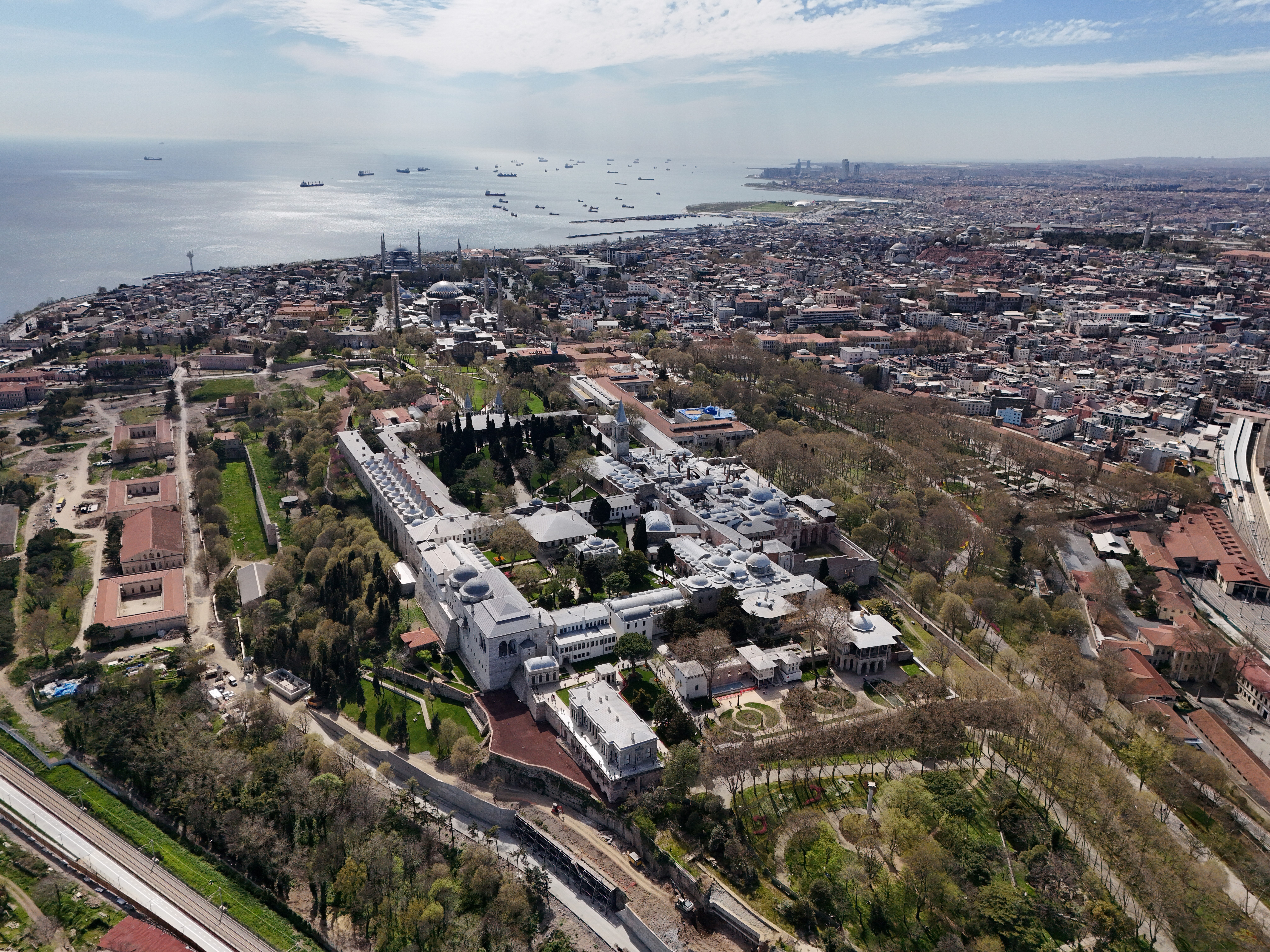
The second abuse highlighted in the journal occurred during the counting of the Russian army’s cannons. It was decided during the night negotiations that the Russian cannons would be handed over to our army. However, no one from the Kapikulu corps was appointed to determine the number of cannons. Only Cavuslar Katibi (Sergeants’ Scribe) Abdulbaki Efendi was sent to the Russian camp early in the morning. After Abdulbaki Efendi counted and recorded the cannons alone and returned to the camp, he explained loudly, “34 large cannons and two large cannons have been found, and there is a small amount of ammunition.” As understood, while officers from the Kapikulu corps, probably from the Artillery Corps, should have been sent for the cannon count, an irrelevant person was sent by Osman Agha, and he counted the cannons much less than they were. Because according to Russian army reports, Tsar Peter’s army had 122 cannons, not 36. Moreover, the Tsar lied, saying, “I beg you not to take these cannons. Many enemies would prevent me from returning to my country, and I would be humiliated and disgraced in the eyes of other kings. I will pay the price for the ammunition and cannons if they do not take them.” Baltaci, Osman Agha, and others immediately accepted this ridiculously reasoned lie for some reason. Janissary scribe Hasan summarizes the situation as follows:
“I couldn’t believe how such a mistake could have been made. However, it later turned out that the Tsar had lied. Nevertheless, it was impossible to hold those who governed the state accountable, so no one dared to say anything, and everyone was left speechless in astonishment.” Thus, after the permission given on Wednesday, July 22nd, “the Tsar and his army, writhing in distress like a trapped nightingale,” as Hasan put it, flowed away like water with their cannons, rifles, and ammunition, supposedly escorted by some Ottoman units to protect them from Tatar raids.
Naturally, these successive developments and the peace treaty infuriated the Janissaries, who were eager to seize the Russian camp and plunder the spoils before anyone else. Janissary Hasan observed this reaction from his comrades as follows: “All the Janissaries in our army were burning with anger at the enemy’s escape in this way. After the departure of the spear army, they left their trenches very sadly and returned to their tents in tears. Some Janissaries, feeling resentful and angry, even started to return towards the bridge without entering their tents.”
Despite all this, everything that happened on the banks of the Prut was reported to the Sultan by his secret observers there, including the Crimean Khan Devlet Giray and others whose words were not heeded. Both these reports and the testimonies of the witnesses who spoke during the investigation conducted after the army’s return to Istanbul conclusively proved that some statesmen had abused their positions and committed irregularities during the Prut campaign. Now it was time to pay the price. First, Grand Vizier Baltacı Mehmet Pasha, who was seen as the main culprit, was dismissed and sent into exile to Mytilene.
Then, Katip Hasan describes the subsequent developments in his journal as follows: “A few days later, it was revealed that the treacherous Russians, who did not honor their agreement, had failed to fulfill some of the conditions of the peace treaty. On Friday, December 24, 1711, after the peace treaty was signed, our Sultan summoned some individuals who were found negligent with a pretense. Osman Agha, the Kethuda of former Grand Vizier Mehmet Pasha, Mektupcu (correspondent) Omer Efendi, and Cavuslar Katibi (Sergeants’ Scribe) Abdulbaki Efendi, the perpetrators, were brought before the supreme presence, where the Grand Vizier and the Crimean Khan were also present. The new Grand Vizier Yusuf Pasha and the Crimean Khan, taking the floor, explained in detail, with evidence, how the aforementioned individuals had abused their duties against the interests of the state during the negotiations and the conclusion of the agreement. The accused could not find any words to defend themselves. Thereupon, a fatwa was requested from the Sheikh al-Islam for the punishment of the perpetrators. After the fatwa was written, Osman Agha and Omer Efendi were executed in the afternoon, while Abdulbaki Efendi was imprisoned.”
Katip Hasan concludes his account of the intrigues and their consequences on the banks of the Prut with these words, expressing what he saw, heard, and knew. As understood from his journal, he refrained from directly accusing those he suspected of being involved in these abuses, either out of fear of influential people or out of a sense of avoiding sin, but he wrote down the irregularities he witnessed and the reactions shown as they were. We cannot offer enough prayers for the humble and honest soldier and bureaucrat Janissary scribe Hasan Kurdi, who helped illuminate the unknown truths about the Prut campaign with the memoirs he left for future generations.



